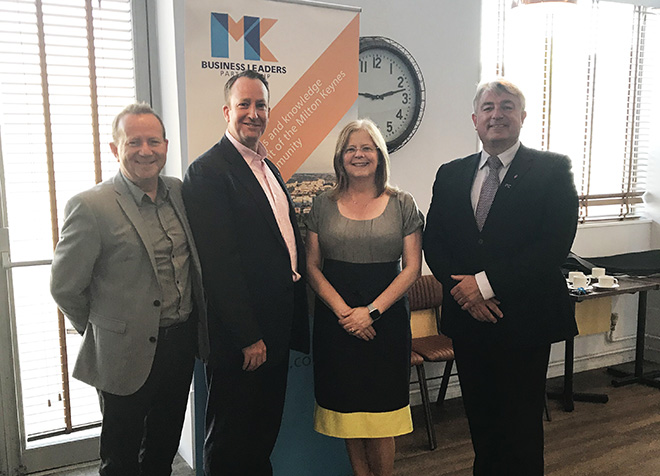THE DIGITAL economy in the UK is outpacing the growth in the wider national economy. The future is looking increasingly data driven.
However, the European Commission fears that as many as 756,000 jobs in the European ICT sector will be unfilled by 2020 and, as the average digital salary in the UK is 44% higher than the national average, the skills gap needs to be bridged.
Bletchley Park is set to be home to one of only 12 Institutes of Technology in the UK, chosen by the government and backed by some of the world’s leading technology organisations. With the industry developing at breakneck speed, the new institute will be offering significant career opportunities to its graduates.
The Institute of Technology is being created by a consortium led by Milton Keynes College. Outlining the plans to a meeting of senior business figures in Milton Keynes, the college’s principal and chief executive Dr Julie Mills said: “The government did not want another institution, deposited in the middle of a college and a university. It wanted a truly employee- led establishment, specialising in delivering higher level technical STEM skills, with strong recruitment pipelines for those wanting to increase their employability and earning potential.”
Following a £28 million investment from the Department of Education and with strong backing from organisations including Microsoft, KPMG and McAfee, the Institute of Technology is set to play a pivotal role in bridging the gap within Milton Keynes and the surrounding areas.
Its curriculum will be driven by employers and 40 per cent of students’ time will be spent within an industrial placement, applying theory to ‘live’ work environments, Dr Mills said.
“Digital disruption is driving huge demand for access to skilled technology professionals. The IoT will be a regional hub for digital education and employers are central to the curriculum so we can deliver outstanding learning opportunities which provides a clear route to high skilled employment.”
She was speaking to an audience of senior businesspeople at a breakfast briefing hosted by Milton Keynes Business Leaders Partnership at the college’s Brasserie restaurant on its Bletchley campus. Dr Mills also summarised the redevelopment of Block D at Bletchley Park which will house the Institute of Technology.
With building well under way, and the first cohort of students expected in September 2021, she acknowledged that the consortium behind the IoT is now on a mission to drive awareness. “The IoT is for anyone over the age of 18 looking to improve their skill set beyond A Levels or vocational courses, who does not necessarily want to go on to a traditional university but still wants fulfilling, high-skilled careers.
“Salaries of the indigenous Milton Keynes population are much lower than those high skilled people that local businesses are currently bringing into the city to fill digital and technical positions. The workplace is becoming increasingly polarised between high and low skilled workers, and the middle ground is disappearing.”
The aim is for the Institute to be educating 1,500 students by its fifth year, she added. However, the consortium also has to meet recruitment equality targets set by the Department of Education, including, by 2025, for 45pc of its learners to be female.
“Between Cranfield University, MK:U and the Institute of Technology, we are creating opportunities and a wonderful pool of talent within Milton Keynes and beyond,” Dr Mills said. “And, if we get the IoT model right, we can roll it out across other industries in the future.”

